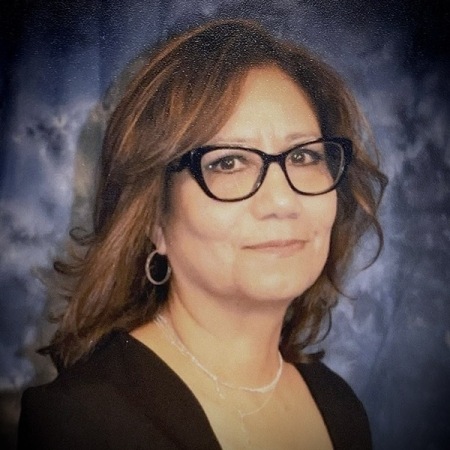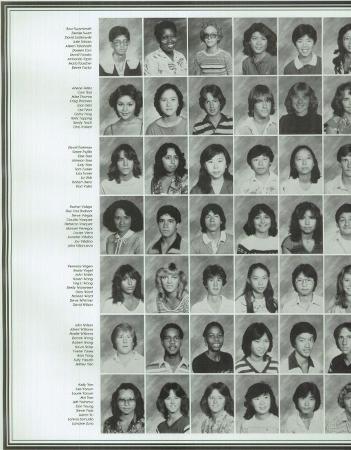Rebecca Lieras:
CLASS OF 1984

Pioneer High SchoolClass of 1984
Whittier, CA
Glen A. Wilson High SchoolClass of 1983
Hacienda heights, CA
Saint Christopher SchoolClass of 1979
West covina, CA
Rebecca's Story
"Hello!!! You ALL ;)"
I hope life has been good to you.
Young, “Naive” in my 10 year/1st Marriage!! Confident to say, I gave it my all,
Raised: to be a good cook, keep a clean home , have a routine for my kids, and of course.. l😉 It was the other women pregnant outcome, calling to ask who I was 😂! I didn’t fight for my husband, My senses were on point about her type and the situation.. we had 3 good chances to go back and make it work.. … time ran out and our lives moved on.
did I learn from this situation? Yes
I asked him to be there for our kids, waived alimony, I wanted help with our kids, not his Financial retaliation, or the manipulative games that played out..
Thoughts 💭 I want to share!!
It’s important to own up to our choices and mistakes, and learn to set boundaries.
Know our worth!
After the divorce is done: Let’s help guide, our kids, grandkids in our life to be the individuals they want to become. help them figure out what they want to be, help understand their options, and teach them how to set goals. They only know by what they see, learn from our own family members that may not be good role models.
We dont know the outcome of any relationship, No one is perfect.
Always try communication with your partner until it work's, make effort to work together!! regardless if you live together or not. if there’s kids involved?? They will be okay in any situation shared or not.. please consider the kids well-being.
Cant keep blaming parents all your life for you're behavior, mental health, sure it started there, but understand how to learn by it! Change it! It’s not okay, to repeat a codependency or other type of dysfunction , learn to be a healthy relationship and heal from it!
Trust broken? Trust has to be earned again and built up again and does come natural if the love is there.
Some relationships look to you for help fix their toxic thinking.. while they have manipulative tendencies.
keep in mind: they need to fix themselves, it’s not your job! Not all of us were warned about narcissistic behaviors or aware.
Couples get lost in the shuffle of kids, work, career changes and it all gets misunderstood it feels like the other doesnt care, this is why you have to be on the same level of communication.
Marriage has to be for the right reasons:
The fight should be to hold onto the marriage. The Heart has to be in it!
My Best Outcome:
My 3 grown kids, and my 4 grandkids.
life is short!! Only you can make you happy!! Not everyone is blessed with that ideal spouse that can be spontaneous, romantic, playful, or be that teammate.
___________________
learning boundaries, some of us, place other people’s wants and needs before your own naturally giving and not receiving anything because they saw it in the homes, and didn’t know anything else.
maladaptive people-pleasing pathology, and/or all the other basic behaviors that at some point made their dysfunction clear to you.
Then Back to learning about yourself more than ever. We sometimes need outings, some start dating, or we just make a new friends.
Do we find ourselves back in the same complicated emotional dynamics? Yes!! It repeats itself until we see it.
Ever wonder “what” “why” “how”. It happens, or repeats the cycle in a different relationship?
it’s the inclination to render one’s own needs and wants secondary to others; to confuse caretaking for friendship. (Wondering if and why Caretaking is rooted in self esteem; caregiving is a pure expression of love.)
It wasn’t until after the initial separation of the first marriage. ultimately, I became a single mom, matured and later learned what setting boundaries was. I learned this dynamic had a name, I read about it extensively and worked valiantly to change my patterns, and analyze my understandings to see why I was this way, and where it came from. Understand I was sheltered, changing how I want my kids to differentiate, while figuring it out on my own.
it's a psychological construct shaped by one's cultu...Expand for more
re and “environment.”
Codependents were raised to believe that it’s wrong to make mistakes, wrong to be imperfect, to not show emotions, or to look different. “Their environment was shame-based and they were taught to base their worth on where they fell compared to other people.”
The message they received was that positive external approval made them worthy and valuable.
“Codependency is characterized by people who are over-caring, lack an ability to set and maintain boundaries, and have an overwhelming need for approval, affection, and acceptance.”
“A codependent person is frequently drawn to relationships with manipulative, narcissistic, and/or self-centered people who frequently find themselves caught up in drama and who have insatiable emotional needs.” 😳
SIGNS OF MANIPULATIVE OR NARCISSISTIC PEOPLE
Codependent people find their way to those who need support, and where the focus is automatically moved off them and placed onto the other person. Sometimes that other person has active addictions, addictive behavior, and/or is a narcissist. The caretaking that the codependent believes will reward them in the end never comes, because there is no end. The caretaking is nonstop.
The codependent is driven by the need for approval—and what better way to get someone to really see you, appreciate, and value you than from someone who relies on you to help or fix them?
And yet, because the codependent has signed over all their power to their love object, or friend, they have also forfeited their self-worth. The thought of leaving and being alone is terrifying to the point of feeling paralyzing. Without this person, the co-dependent feels they have no self, and their very survival seems to depend on the connection they have with the unstable partner.
(It's important to note that people who have worked through their issues with codependency may still have codependent tendencies.
This means they may not necessarily be drawn any longer to narcissistic or manipulative people, but they can still slip back into that old role. Once the person with the pattern recognizes this is what they're doing, they can work to course-correct.)
This paradigm can be traced back to the childhood dynamic that kids with absent, helpless, or abusive parents were forced to develop. When you are a child, you depend on your parents or caregivers for your survival—but what if your parent has a substance-use or psychiatric issue, or is violent or emotionally or physically absent? In some cases the child is the parent for the actual self centered parent.
The child’s entire focus will very likely center on making certain their parent stays alive, because if the parent dies, the child dies. This dynamic is the template that is created for the child’s future relationships, and it’s imbalanced and unhealthy.
Those who grow up as “helpers” frequently had parents who were hard to please, leading kids to believe that the only way to get approval is through helping behavior. These little helpers are disconnected from themselves and therefore don’t learn that their worth comes from their own internal value. All they know is that respect comes from external sources, and not from inside.
If a child is raised in a situation where they only receive care if they care for their dysfunctional parent then they will model their future relationships on this template.
The child grows to understand that the only way to receive care and get their needs met is to be manipulative and fueled by drama, like their parents, or they grow into a person who over-gives and never receives.
HISTORY OF CO-DEPENDENCE
Before the word “codependent” made its grand entrance onto the psychopathological stage, it went by a different name, one relegated to the world of addiction. Family members and spouses of alcoholics were once called (you should maybe sit for this) “co-alcoholics.”
But, once the term “chemical dependence” was coined, the word “co-alcoholic” was dropped and family members and spouses were upgraded to the newer term “codependents.”
Register for Free to view all details!
Yearbooks
Register for Free to view all yearbooks!
Reunions
Register for Free to view all events!
Photos













